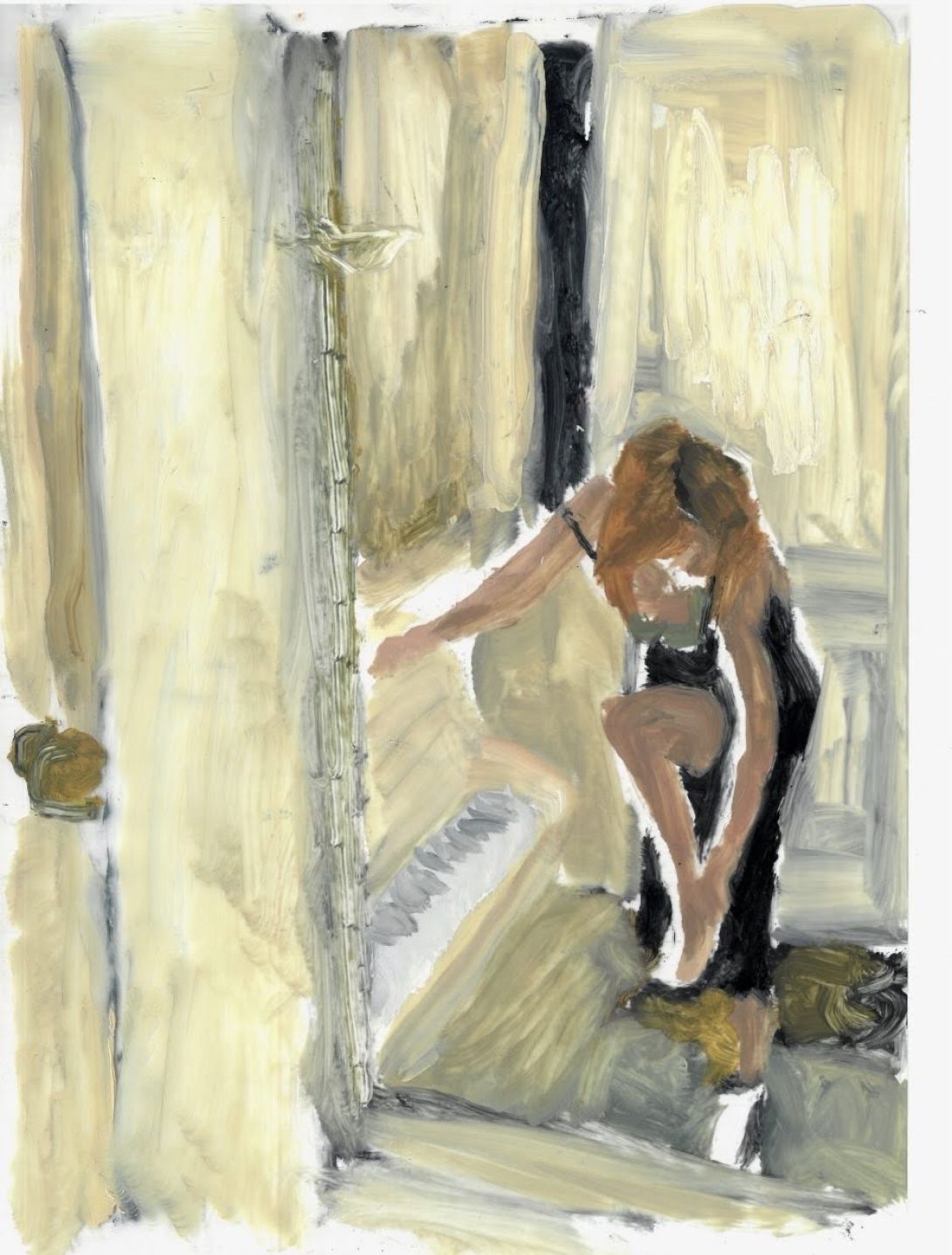Embodying a felt experience through a female gaze, Emelia Archer's practice is centred around the visual representation of memory. Exploring a narrative alluding to a lived experience of female anxieties. Using the medium of oil paint, she produces works which reconfigure and re-contextualise imagery. Intrigued by the idea of a turning point within a moment, these works seek to create a pictorial language which oscillates between euphoria and tragedy.
In a sense, the mark making used is representative of the repercussions of a moment. Tightly rendered in places but also somewhat light and ethereal, they entail an emotion which can contradict the form or composition of the subject at hand. These illusions of tactility in the painting of flesh, fabric or jewellery, builds a subject bound to a space in time and collapses the distance between the subconscious and reality. Materiality in combination with this fleeting voyeuristic perspective conveys both intimacy and detachment, akin to staring through a screen or window. Larger than life figures set aside small, cropped forms which congregate to construct a weft and weave of time. This collective narrative appears to be suspended in between a before and after, impregnated moments that never quite resolve themselves. This produces permanence within the vague, immortalising a moment in time. Her aim is not on likeness of representation but to build a not fully materialised vision of events, reminiscent of a heightened bodily experience or visceral reaction. To personify an emotion or universal experience rather than the subject itself; finding a place within the work which speaks simultaneously of both elation and misery allows for ambiguity to direct the reading.Ultimately, She endeavours to find a place in the work that can be read as either solace amongst chaos or chaos amongst solace. Embodying the ambivalence of seeing through paint.
